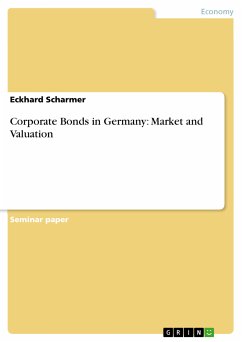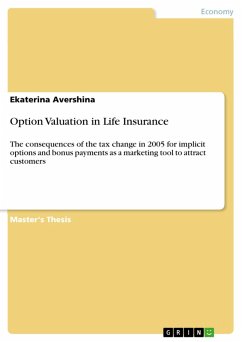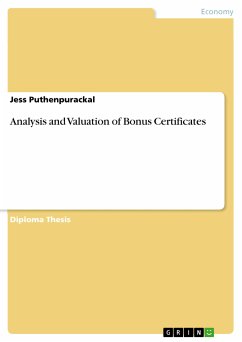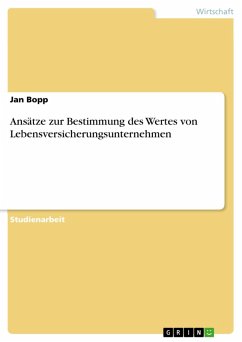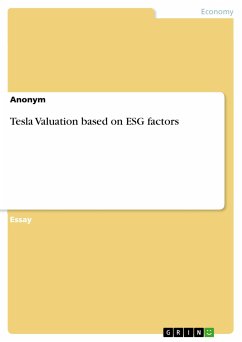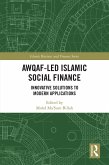Seminar paper from the year 2003 in the subject Business economics - Banking, Stock Exchanges, Insurance, Accounting, grade: 1,7 (A-), European Business School - International University Schloß Reichartshausen Oestrich-Winkel (Department for Asset Management), language: English, abstract: The German corporate bond market is, like many other markets, subject to a constant development: New external conditions and changes in our economic environment always trigger new trends that can be observed when analysing the structure of capital markets. Particularly during the last months, a new significant tendency could be observed in Germany: As market statistics indicate, more and more German corporations decide to issue equity-linked securities such as convertible bonds instead of raising capital using straight corporate bonds or equity. Consequently, investors are now faced with a new asset class beyond debt, cash or equity. This implies more opportunities but also bears some risks, problems and pitfalls as each convertible has specific characteristics and covenants which have to be taken into account by the investor. The purpose of this study is to reveal the reasoning behind the growing popularity of convertibles within the German corporate bond landscape. In this context, the consequences and opportunities for the investor are emphasized as the paper shows how asset managers can benefit from the particular characteristics of convertibles. Moreover, the price reaction of the underlying share price on an announcement of a convertible issue will be analysed. In order to avoid a too theoretical approach, two extraordinary equitylinked issues that took place in Germany in 2003 are discussed and compared.
Dieser Download kann aus rechtlichen Gründen nur mit Rechnungsadresse in A, B, BG, CY, CZ, D, DK, EW, E, FIN, F, GR, HR, H, IRL, I, LT, L, LR, M, NL, PL, P, R, S, SLO, SK ausgeliefert werden.

